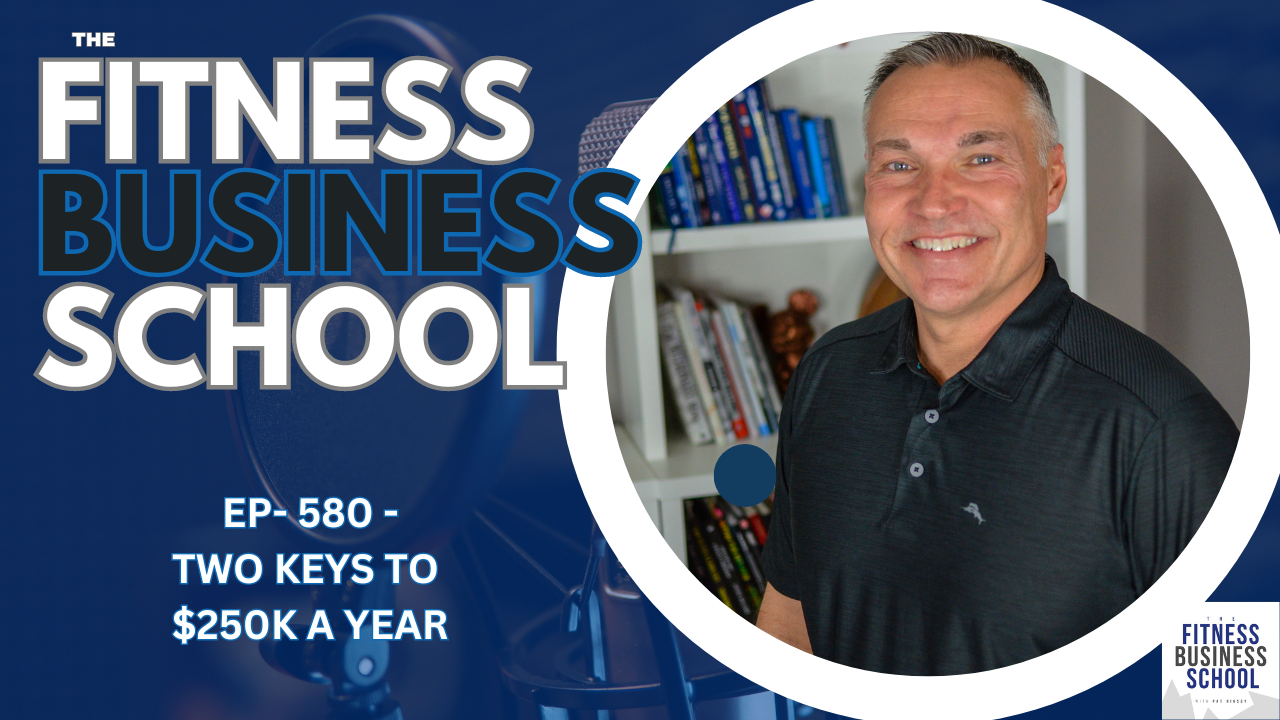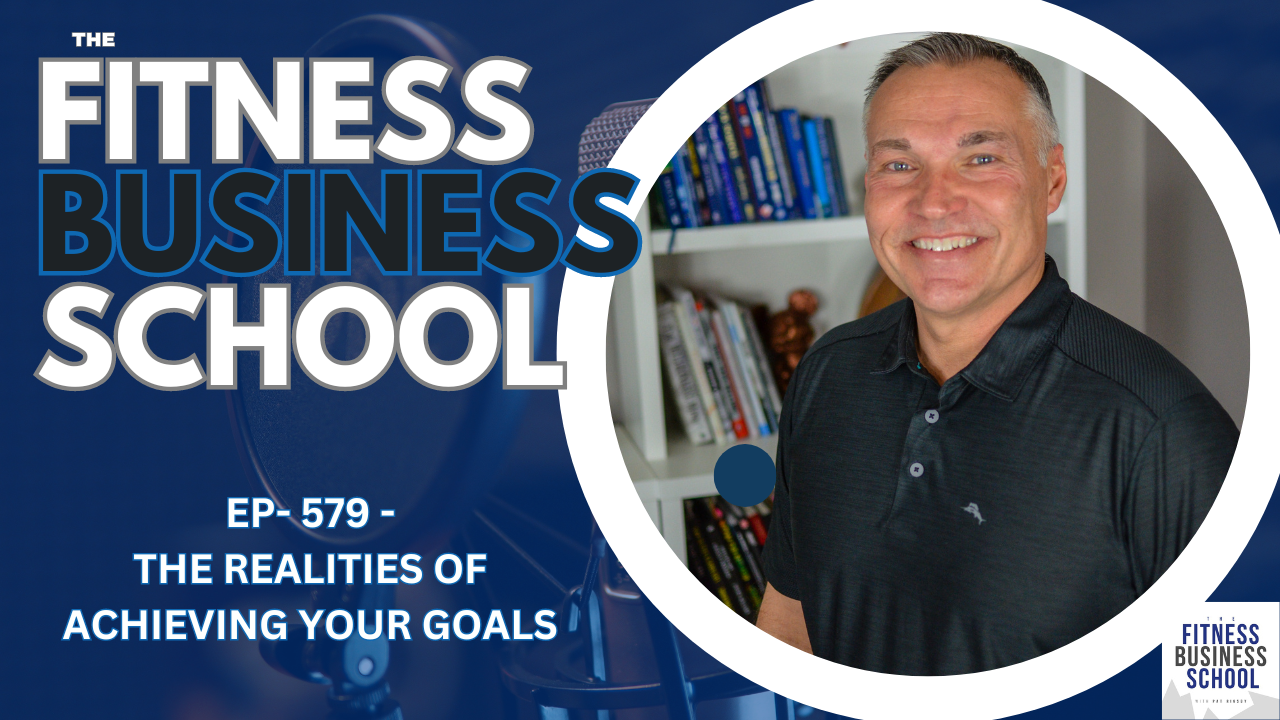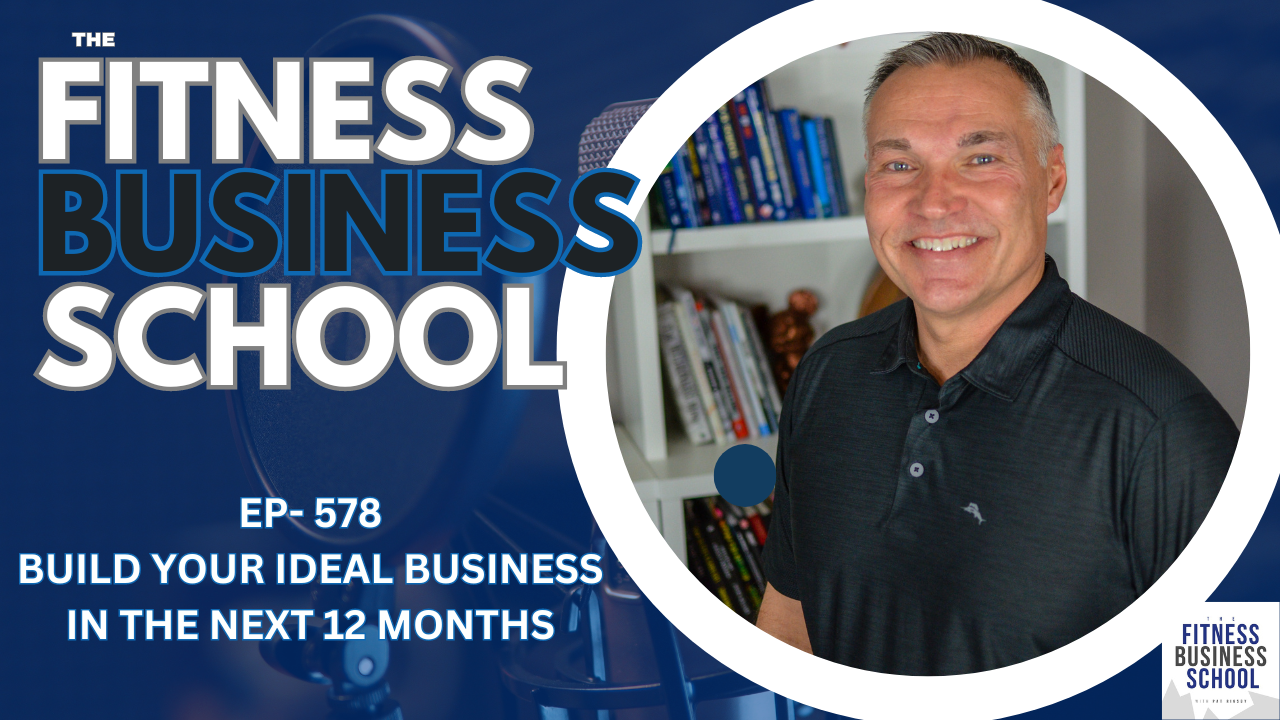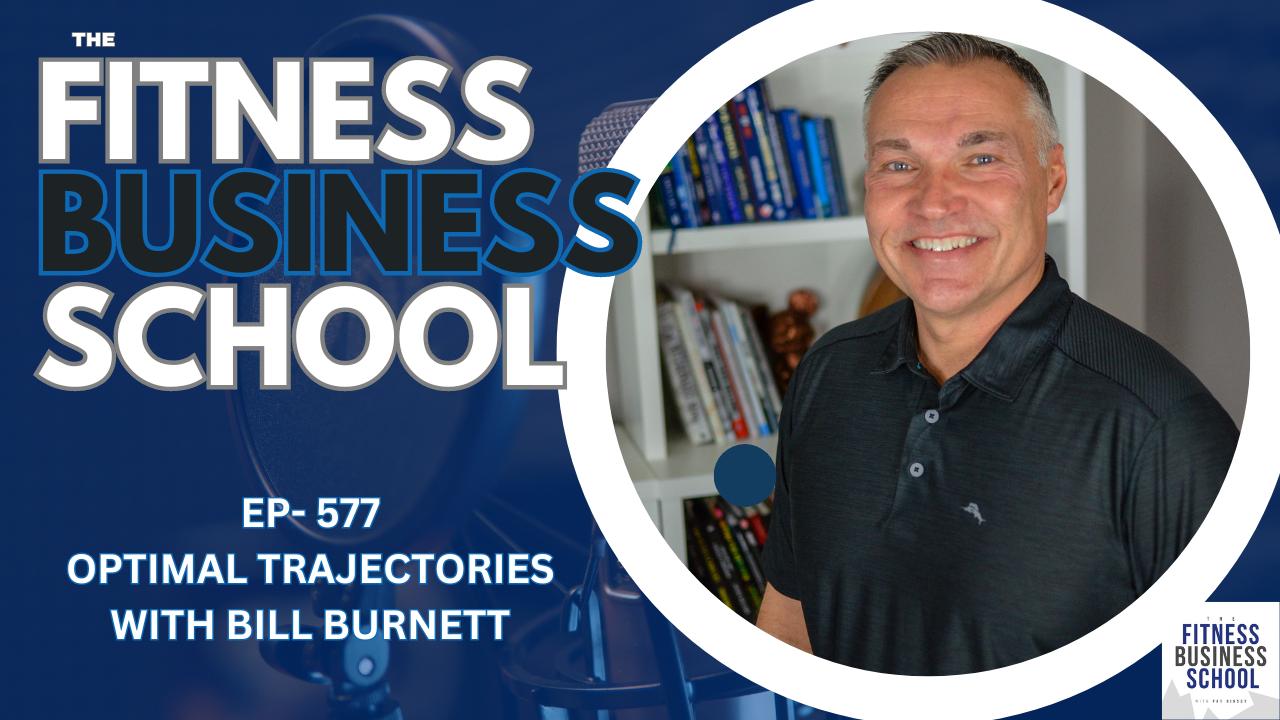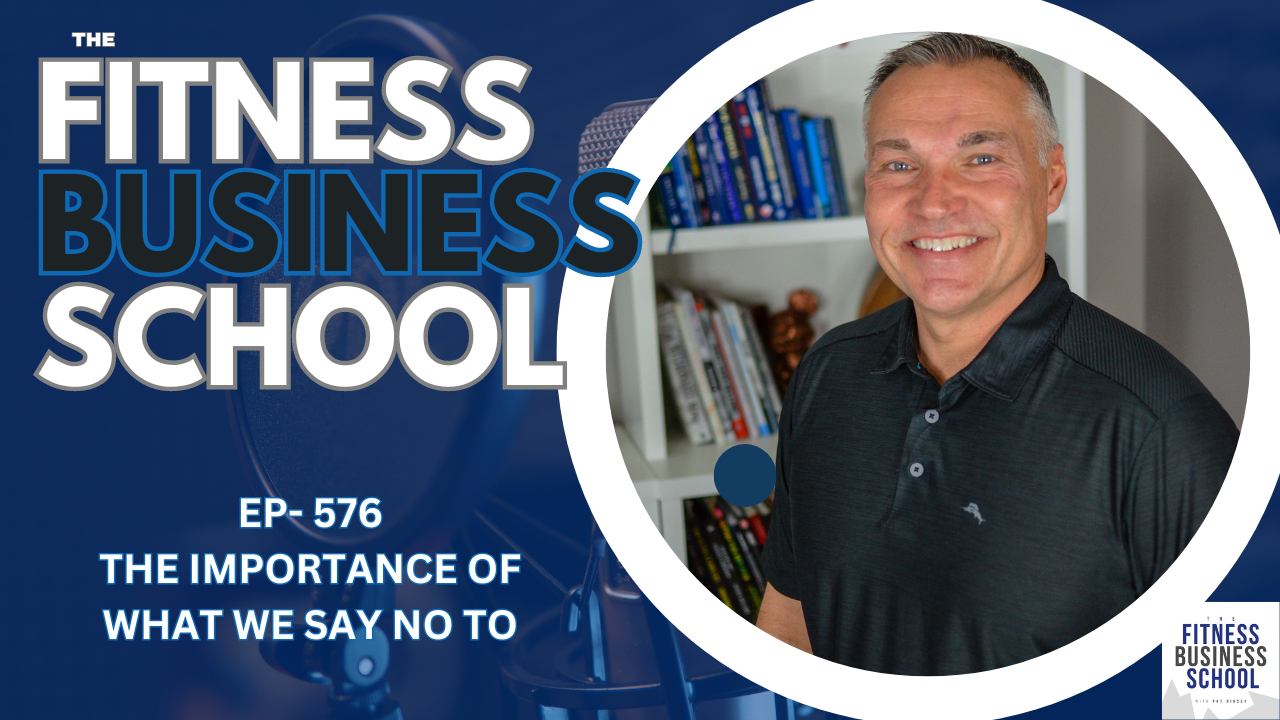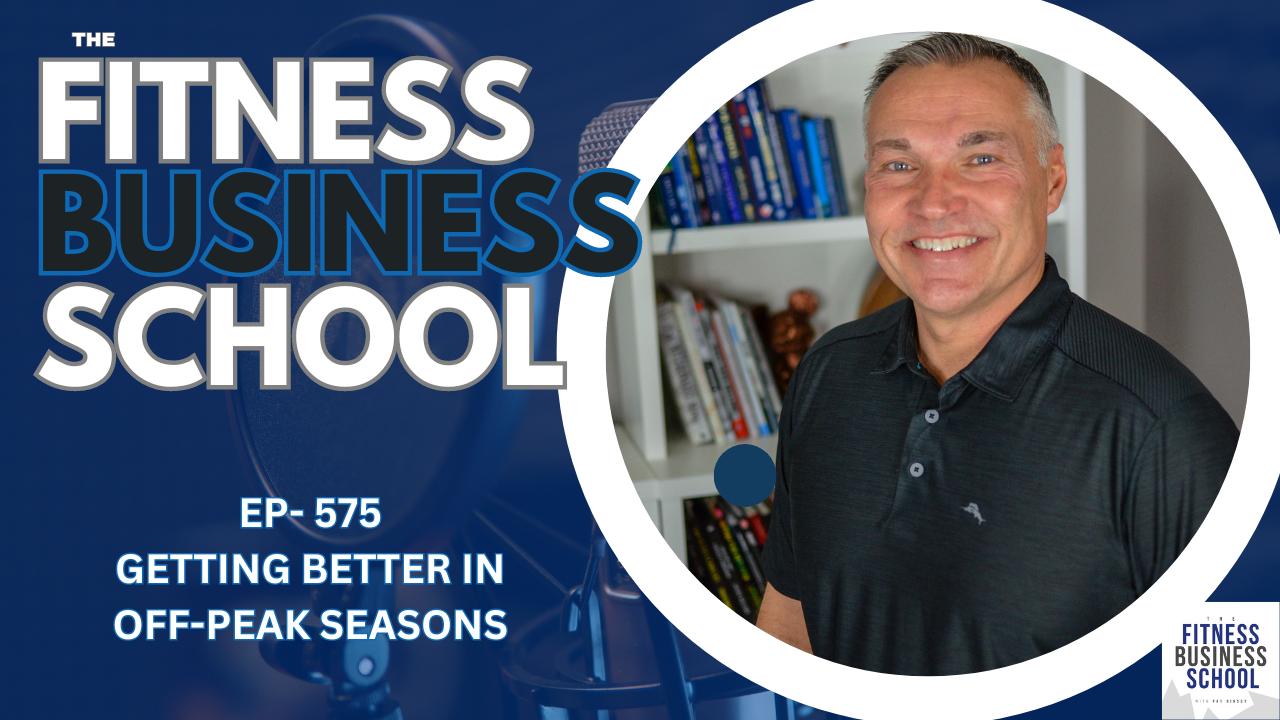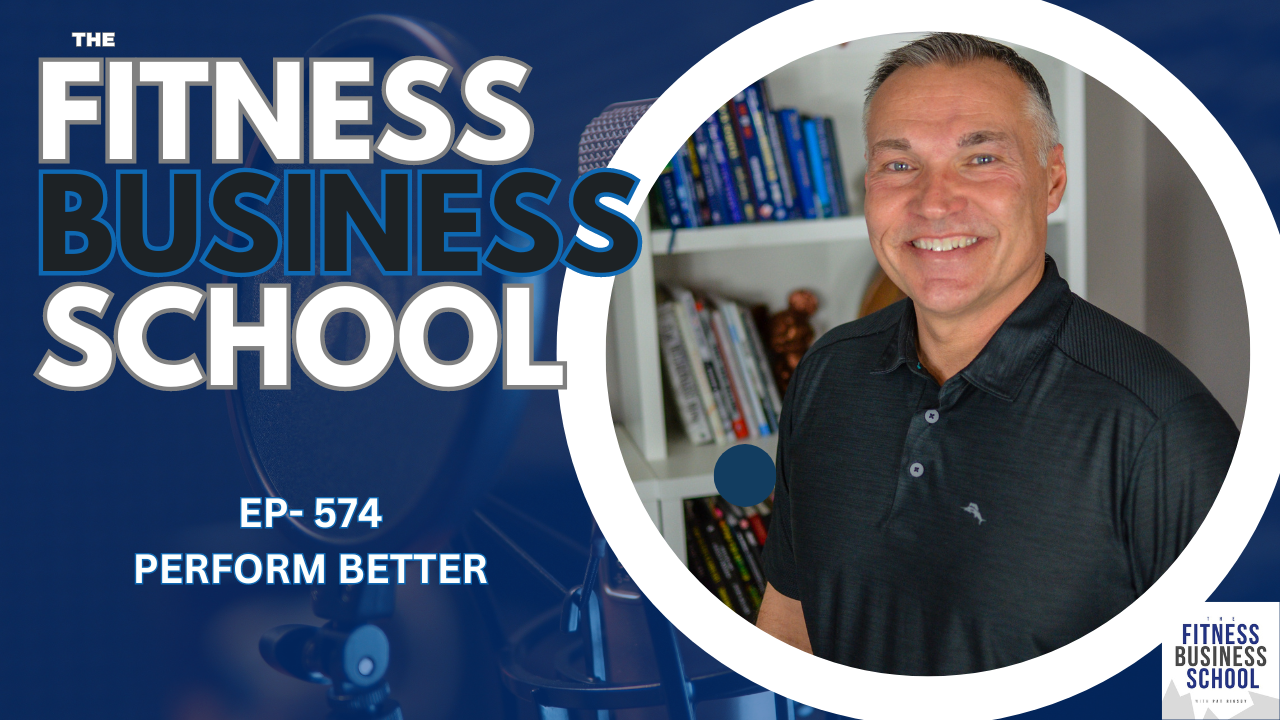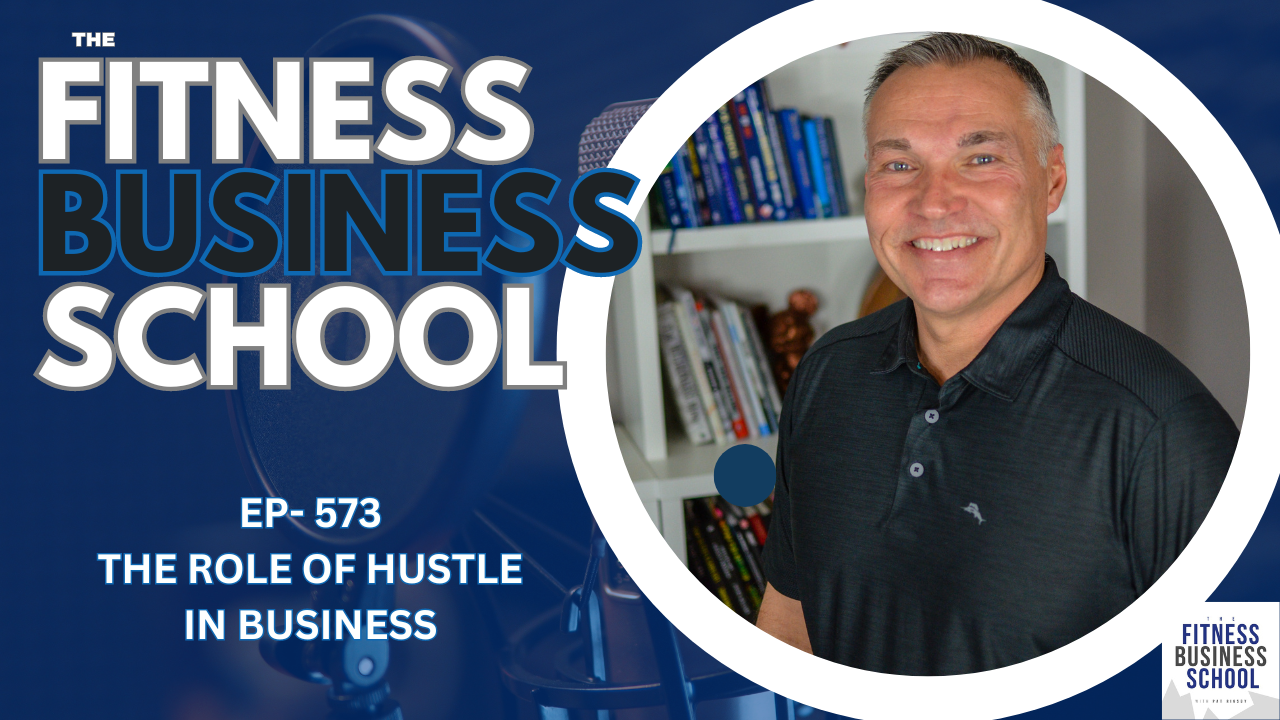Show Notes
00:00 Introduction to Success
00:28 The Myth of Linear Progress
01:57 Realistic Approaches to Success
03:43 Handling Ups and Downs
06:29 The Importance of Inner Game
09:01 Conclusion and Special Offer
Full Transcript
Hey, Pat Rigsby here and in today’s episode I want to talk about how success actually happens. Let’s get to it.
Welcome to the Fitness Business School podcast, the show for fitness business owners who
want to grow their income, increase their impact and improve their lifestyle. Be sure to listen to the end
of this episode because we have a brand new special offer exclusive for listeners. So stay tuned.
It’s always interesting. How people think about what success is supposed to look like and how they fall into the trap of the straight line progress or this simple math that if you’ve ever been in a network marketing presentation there, there’s always that. step in the presentation where they’ll talk about, Hey, if you get three people and each of them get three people and each of those people get three people before long, you’re going to have a private jet and you may have a private Island and the world will be in the palm of your hand.
And the math works, right? Like the math works, but it doesn’t really work. In reality, once you stress test it with humans, for most of us, heck, I learned about high ticket consultant the other day that did that same kind of math. And they’re like, Hey, if you sell one. 5, 000 high ticket package a day. You’ll be a millionaire and follow our simple system and we’ll cold DM these people.
And if you cold DM that many people, you’ll get this many calls. And if you get this many calls and you convert at this rate, you’ll sell this one thing as if it’s as simple as that mathematical formula. And. It’s just not, I don’t want to say that you shouldn’t use some sort of formulaic approach in what you do.
It’s just you should be a realist about how things actually happen and that’s what your formula should be based on. You should know your closing percentage. It’s going to, it’s going to be based on your unique skill sets, your offer, the people that you’re sitting down with, your prospects, and you should be documenting this and trying to improve it.
But if somebody just throws out a number on a spreadsheet and says, this is what it’ll be, what do they know about you? What do they know about your market? What do they know about any? Of this, but it’s the same thing. Think about the way that so many people were sold weight loss forever. And they’d say, Hey, lose two pounds a week.
So if you want to lose 25 pounds, then two pounds a week, 25 weeks, you’re all set. If you want to get stronger, if we add. Five pounds to the bar week after week in a year, you’re going to be 250 pounds stronger. Anybody who’s been in the weight room knows that it doesn’t work exactly that way. Just like me saying, Hey, if you had two new clients a week, By the end of the year, you’re going to have a hundred new clients.
The other one that I think we get sold is, Hey, the historical rate of return in the stock market is 10 percent over the last century. Week by week, when you check your investments, you should expect 10%. Anybody who’s ever paid attention to the stock market knows that’s not how it works. Things aren’t linear.
And that doesn’t mean that We shouldn’t be employing the behaviors that create progress. It means that there are going to be ups and downs. It means that if you’re trying to lose weight. There are going to be weeks where the number on the scale doesn’t move. And then there are going to be weeks where the number’s higher than that two pounds.
It’s not linear. There’s not some magic kind of internal calendar that says, Hey, seven days equals two pounds. And so we’re at day seven. We’re going to hop on the scale today, make sure those pounds have disappeared. And I don’t think that the people that fall into those. Expectations do very well because they miss out on the fact that we’re dealing with human beings that we’re building Our operation around human behavior.
And so no matter how effective your systems are, they’re going to be ups and downs. They’re going to be weeks of plateaus interspersed with rapid improvements. There may be steps backwards before leaps forward. In fact, more often than not, there are, and that kind of peaks and valley or rollercoaster element of entrepreneurship, it is the thing that.
throws so many business owners off. They get caught up in the day to day of everything. Even some of them are hour to hour. If you have a lot of sales consultations and all of a sudden you have three people that say, Hey, this isn’t for me or I need to think about it in a row. Some people. I’m a bad salesperson instead of saying maybe today’s not my day.
It’s just not how it works any more than saying if I got three red lights in a row that I’m destined to get red lights for the rest of my life when I’m driving, you fall into that trap. That’s how stress and burnout and even just throwing in the towel happen. But the thing is, if you have a plan that, that is proven that you have some evidence works and you have some proven systems and you understand that a bad day doesn’t mean that you’re off track or a bad experience doesn’t mean the sky is falling.
How many people have we seen have great retention for two or three months in a row, then all of a sudden they have three cancellations in a week and and they’re questioning everything that they do to retain clients. And it doesn’t mean that things shouldn’t be put under the microscope and we shouldn’t be trying to improve.
It means that we can’t be emotionally. active or probably overreactive to every little instance that happens, because if we do, our business owns us, we don’t own our business. And here’s the secret that I don’t think most people understand. And virtually nobody coaches in our industry. Having taught sports psychology forever, many years ago at a university, this was something that I think always piqued my curiosity was like, People get so caught up in the strategy, the tactics, if you’re in sports, the drills, the mechanics, and they forget that.
Without the right inner game, without perseverance, the rest of this stuff is going to make negligible improvements at best. Because you’re going to have tough days no matter what. You’re going to face challenges. There are going to be ups and downs. The best athletes in the world have off days. The, Warren Buffett’s the best investor historically, in my opinion.
In the stock market. And I think that if you look at his track record, there, there are no shortage of downs, there are just more ups and bigger ups than the downs. So if those people experience the peaks and valleys, then it’s pretty certain that we are going to as well. And the best business owners. They ride that wave and it’s not that they don’t get frustrated by it.
It’s just that they’re pretty good at shrugging that off, minimizing the impact it has on their day and staying the course and following the process that they believe in. And then using any sort of meaningful feedback, anything that comes with some consistency, using that to make their process better.
If you do, that’s how you’re going to minimize the impact of the fact that Success just isn’t linear. It’s not going to be this perfect step by step formula. And as somebody who thought this way initially and was sadly mistaken, Hey, when you have those systems, when you’re like, Hey, I’ll be set when we have this system, we’ll be done and I’ll, it’ll all be hands off.
It’s just not the way things work. Instead build things. and evolve as circumstances change, as market preferences change is you and your goals change and understand that along the way, they’re going to be. Pitfalls, challenges, hurdles, the people who deal with those the best are going to be the people who succeed the most.
Thanks for listening to this episode of The Fitness Business School.
Before you go, I have a quick announcement:
One of of the things that we’ve been doing with our current clients is taking them through this Ideal Business diagnostic and really what it is, this checklist that allows you to pinpoint exactly what your business needs next so you can keep improving, keep growing, and build a business that you love to own, one that pays you well, one that allows you to have the impact you wanna have and one that allows you to have a lifestyle that you truly enjoy.
In this diagnostic, we walk through everything and we do an evaluation and can instantly pinpoint what you need to do next to build that business that you want. I’m going to extend this opportunity to get on with either me or my team and take you through this evaluation and fix your business’s most vital needs fast.
So if we take you through this, you’re gonna be able to make those vital changes that you need to finally have what I call your Ideal Business. If you’d be interested in going through this entirely free, risk-free diagnostic with us and learn what you already have in place, what you’re doing well and where are your greatest opportunities for rapid improvement are just shoot me an email with diagnostic in the subject line to [email protected].
Again, an email to [email protected] with diagnostic in the subject line will get
you scheduled and take you through this evaluation to help you build the business you want.
